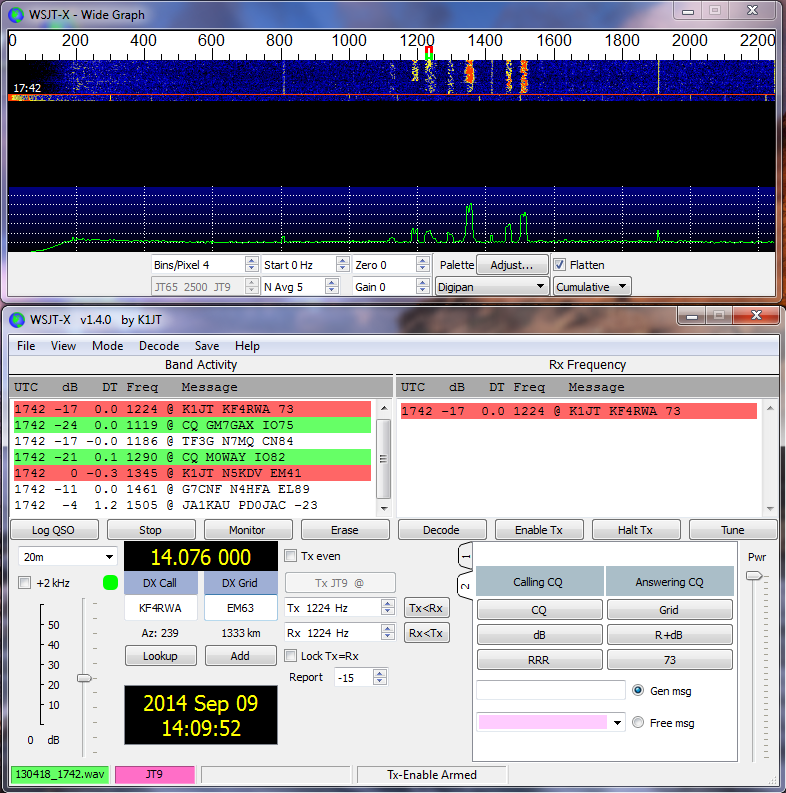WSJT-X v1.9.0 released
Joe Taylor, K1JT, has announced the long awaited full General Availability release of version 1.9.0 of the popular WSJT-X software package.
WSJT-X implements communication protocols or “modes” called FT8, JT4, JT9, JT65, QRA64, ISCAT, MSK144, and WSPR, as well as one called Echo for detecting and measuring your own radio signals reflected from the Moon. These modes were all designed for making reliable, confirmed QSOs under extreme weak-signal conditions.
As we find ourselves slowly strolling toward the bottom of the solar cycle, HF propagation continues to decline. Many people are turning to these weak digital signal modes as a way to continue to be active, even under the worst conditions. Others enjoy these modes for use with QRP rigs or minimal antennas. There’s a lot to be said about having the ability to get a signal from here to there at >20db below the noise floor.
WSTJ-X v1.9 is a free download and is available from the WSJT-X website here.
NEW FEATURES AND ENHANCEMENTS IN WSJT-X Version 1.9.0
————————————
- New FT8 DXpedition Mode to facilitate high QSO rates in pileup situations: for details see - Decoding improvements for JT65 mode, including a priori (AP) decoding when VHF/UHF/Microwave features are enabled - More flexible Doppler control features for EME - Improved AFC capability for the wider JT65 sub-modes to help with drifting signals - Optional Auto-Sequencing in JT4, JT9, and JT65 when VHF/UHF/Microwave features are enabled - Corrected S/N measurements for the JT9 slow/wide submodes - DX grid locator sent to wsjt_status.txt, for use by applications like PstRotatorAZ - Improved decoding performance for WSPR mode, especially effective at LF and MF - Improved waterfall sensitivity for very weak signals - Optional forwarding of logged information to N1MM Logger+ - Expanded and improved UDP messages sent to companion programs - Allow partial processing of incoming UDP Reply messages so that non-CQ/QRZ decodes can be processed. The processing is the same as double-clicking the same decoded message within WSJT-X except that "Enable Tx" will not be enabled. - Adjustable main-window geometry with a "splitter" between the two text panels. - Better support for macOS using hi-DPI Retina displays - Updated Hamlib functionality including changes to the Yaesu FT-817 back end that allows the uBITx kit transceiver to be CAT controlled by WSJT-X. - Correct the display of DXCC status of KG4 calls - Decoded CQ calls where a prefix has been used as a suffix should have the DXCC entity name assigned correctly in almost all cases - Hamlib, support for TRX-Manager added. - Hamlib, improved support for FLRIG. - Updated copy of cty.dat

